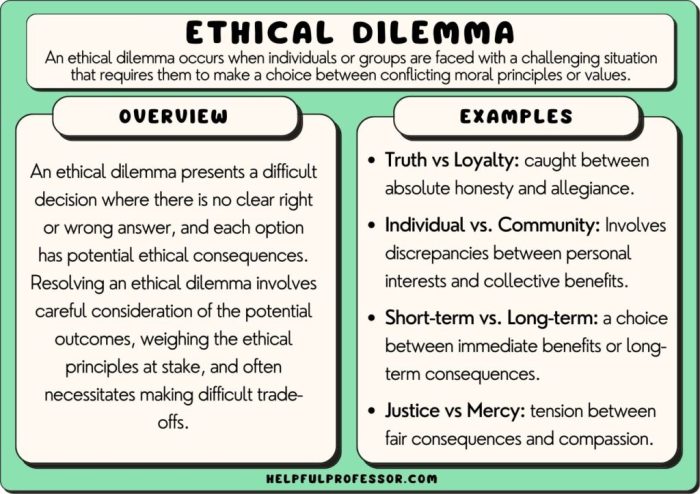Ethical dilemmas in dental hygiene present complex challenges that require thoughtful consideration and informed decision-making. Balancing patient autonomy, professional obligations, and evidence-based practice can lead to ethical quandaries that test the boundaries of dental hygiene practice. This comprehensive guide explores the ethical considerations that arise in various aspects of dental hygiene, providing a framework for navigating these dilemmas with integrity and professionalism.
From maintaining patient confidentiality to respecting patient autonomy, dental hygienists play a vital role in safeguarding the well-being of their patients. This guide delves into the ethical implications of treatment decisions, the responsible use of technology, and the ethical responsibilities of dental hygienists to the profession and their colleagues.
It also examines the ethical principles involved in research and education, ensuring that future dental hygienists are equipped with the knowledge and skills to navigate ethical challenges effectively.
Ethical Considerations in Patient Care
Dental hygienists have an ethical obligation to maintain patient confidentiality and privacy. This includes protecting patient information from unauthorized access, disclosure, or use. Ethical dilemmas arise when balancing patient autonomy and professional obligations, such as when a patient refuses recommended treatment or requests a procedure that may not be in their best interest.
Informed consent is essential in ethical dental hygiene practice, ensuring that patients understand the risks and benefits of treatment and make informed decisions.
Ethical Implications of Treatment Decisions
Treatment planning and decision-making involve ethical considerations related to patient autonomy, evidence-based practice, and patient-centered care. Dental hygienists have a responsibility to provide evidence-based care that aligns with the patient’s values and preferences. Case studies can illustrate ethical challenges in treatment decisions, such as when a patient requests a cosmetic procedure that may compromise their oral health.
Ethical Use of Technology

Technology plays a significant role in dental hygiene practice, but its use raises ethical implications. Dental hygienists must maintain patient data privacy and security, ensuring that sensitive information is protected from unauthorized access. Ethical considerations arise when using social media and other online platforms for professional purposes, as it is important to maintain professional boundaries and avoid conflicts of interest.
Ethical Responsibilities to the Profession: Ethical Dilemmas In Dental Hygiene
Dental hygienists have ethical responsibilities to the profession and their colleagues. Maintaining professional boundaries is crucial, including respecting patient-provider relationships and avoiding conflicts of interest. Interprofessional collaboration presents ethical dilemmas, such as when a dental hygienist disagrees with a dentist’s treatment plan.
Ethical Considerations in Research and Education
Conducting dental hygiene research and educating future professionals involves ethical principles. Obtaining informed consent and protecting participant rights are paramount. Ethical implications arise when using research findings in clinical practice, as it is essential to ensure that the findings are valid and reliable.
Ethical Decision-Making Frameworks
Various ethical decision-making frameworks can be applied in dental hygiene practice. These frameworks provide guidance for resolving ethical dilemmas by considering ethical principles, patient values, and professional obligations. Ethical codes and guidelines play a vital role in shaping ethical decision-making.
Case Studies and Ethical Analysis

Case studies offer valuable insights into ethical dilemmas commonly encountered in dental hygiene practice. By discussing ethical considerations, potential solutions, and implications, dental hygienists can develop their ethical reasoning and decision-making skills. Case studies can highlight the complexities of ethical dilemmas and the need for a systematic approach to ethical decision-making.
Q&A
What is the primary ethical obligation of a dental hygienist?
The primary ethical obligation of a dental hygienist is to protect the health and well-being of their patients.
How can dental hygienists ensure patient confidentiality?
Dental hygienists can ensure patient confidentiality by adhering to privacy laws, using secure communication channels, and maintaining accurate and confidential patient records.
What are the ethical considerations when using social media in dental hygiene practice?
Dental hygienists must use social media responsibly, maintaining patient confidentiality, avoiding self-promotion, and adhering to professional guidelines.
How can dental hygienists resolve ethical dilemmas?
Dental hygienists can resolve ethical dilemmas by consulting ethical decision-making frameworks, seeking guidance from colleagues or supervisors, and engaging in ongoing ethical reflection.